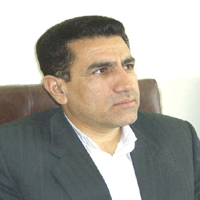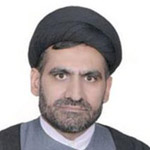Systematic Structure of Intellectual Discipline in the Qur'an and Its Application in Islamic University
Intellectual discipline is a new and innovative combination of discipline in the field of thinking and looks at controlled and measured thought.
The purpose of this article is to explain the systematic structure of intellectual discipline in the Qur'an.
The present study has been written by content analysis method and with reference to Quranic verses.
Statements related to intellectual discipline in the Qur'an are explained in four parts: Basics (necessity of thankfulness, distinction from other beings, prevention of entering hell, responsibility of members, superiority of thinkers, foolish filthiness, falling into the position of the worst being); Prerequisites (positive: piety, forbearance, and negative: following desires, pluralism, personality, blind imitation); Requirements (freedom of thought, respect for opinions and ideas, questioning, truth-seeking, science); And the obstacles (threat, fear, haste, love and hate, anger and rage).
Correct thinking in the Qur'an has a systematic structure that includes all four basic elements of a systematic and systematic network. The application of this research in the religious education of students, especially in the early years of entering the university, can create a great change in their way of thinking and lead them to intellectual growth and excellence.
-
The basic harms of contemporary rationalist commentators in understanding and interpreting the Qur'an by relying on al-Manar interpretation
Zahra Zaheri *, NANCI SAKI, Mohamadreza Hosaini Nia, Zohre Babaahmadi
Aghl va Deen, -
طراحی و تبیین الگوی فضای دانشگاهی مطلوب با رویکرد اسلامی شدن از منظر قرآن و حدیث
فاطمه افراسیابی*،
پژوهش نامه فرهنگ و معارف دینی، پاییز و زمستان 1402 -
فردگرایی، کارکردها و راهبردهای کاهش آن در روابط اجتماعی انسان از دیدگاه قرآن
*
نشریه مطالعات فهم قرآن، پاییز و زمستان 1403 -
The effect of narcissism on mental health and human relationships with an approach to Quranic verses
Fatemeh Seyfalie *
Journal of Quran and Medicine, -
Analyzing Mystical Development of the Character "Eremia" in the Novels of Reza Amirkhani based on the Role of the Verses of the Holy Quran
Qmars Rajaby, Sohrab Morovati *, Mogtaba Mohammady Anvigh
The Journal of Resistance Literature, -
Narcissism in Religion and Its Components Based on Psychological Foundations
Mohsen Hasanvandi *, Mahdi Akbarnezhad, Sohrab Morovati, Eshaq Rahimian Bugar
Journal of Quran and Religious Enlightenment, Spring and Summer 2024




